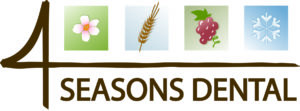Gum disease, tooth loss, and dental decay can all be avoided with regular dental cleanings. Attending these twice-yearly visits can also help find dental issues at their earliest stages, when treatment is usually less expensive and less complicated.
Apart from the obvious advantages, a professional dental cleaning gives a unique sensation that cannot be replaced with regular brushing and flossing. Your dentist or hygienist provides a deeper clean than you might get at home by using a professional toothbrush and somewhat abrasive toothpaste during a cleaning visit.
Eliminating tough plaque and tartar brings about the desired sense of freshness. Untreated, plaque can form a fuzzy layer on your teeth’s surface; tartar feels harsh and crusty. Both drugs have an odor that renders your breath foul.
Learn what our dentists advise patients to do to help extend the advantages of tooth cleanings.
Track your diet
Eating foods and drinks that naturally protect teeth will help you to extend your dental cleaning. Carrots, apples, and celery—among other crunchy fruits and vegetables—help boost saliva production, which naturally cleans your teeth and neutralizes acid-causing cavities.
To increase dental enamel and your jawbone, including dairy products and other naturally calcium-rich foods, including broccoli and spinach, into your diet. Eat meals high in proteins, such as eggs, meat, and nuts, which include phosphorus, a mineral your body uses efficiently to help calcium be utilized.
Reducing the amount of sugar you eat is equally crucial as you boost items that help maintain clean teeth. Sugar fuels bacterial growth and acidity in your mouth, fostering a friendly environment for the formation of plaque. Search processed foods and beverages like Coke for hidden sugar.
Maintain appropriate oral hygiene.
The way you take care of your teeth following a dental cleaning can affect the length of time you enjoy the advantages of your treatment. The American Dental Association (ADA) advises against cutting back on your need for two minutes two times daily brushing and daily flossing just because your teeth feel clean.
Starting with your toothbrush at a 45-degree angle to your gums, concentrate on the correct brushing technique. As you gently press, move your brush back and forth, covering an area no broader than one tooth at a time. Using little strokes as you brush up and down each tooth, tilt your toothbrush vertically against your teeth to clean the interior of each one.
Also crucial is proper flossing. Skipping flossing runs the danger of letting little bits of food waste get lodged between your teeth, which could bond with germs and produce smells leading to bad breath.
Chews gum free of sugar
Although it seems strange for a dentist to advise chewing gum, doing so can increase ten times the usual salivational rate. This helps neutralize and eliminate the acid left on your teeth as food breaks down under the action of bacteria.
Treat dental and physical issues.
Ignoring dental issues can compromise your ability to keep the fresh sensation you want following a dental cleaning. Certain medical illnesses, drugs, or treatments might cause dry mouth, which lowers saliva generation and lets plaque stay longer on your teeth. Furthermore, encouraging the growth of plaque is leaving broken fillings or dental appliances unfixed.
Moreover, some medical disorders can aggravate bad breath. GERD, or chronic heartburn, can cause too much stomach acid to flow into your mouth. Eating disorders, including forced vomiting, including bulimia and anorexia, can cause stomach acid to linger in your mouth.


